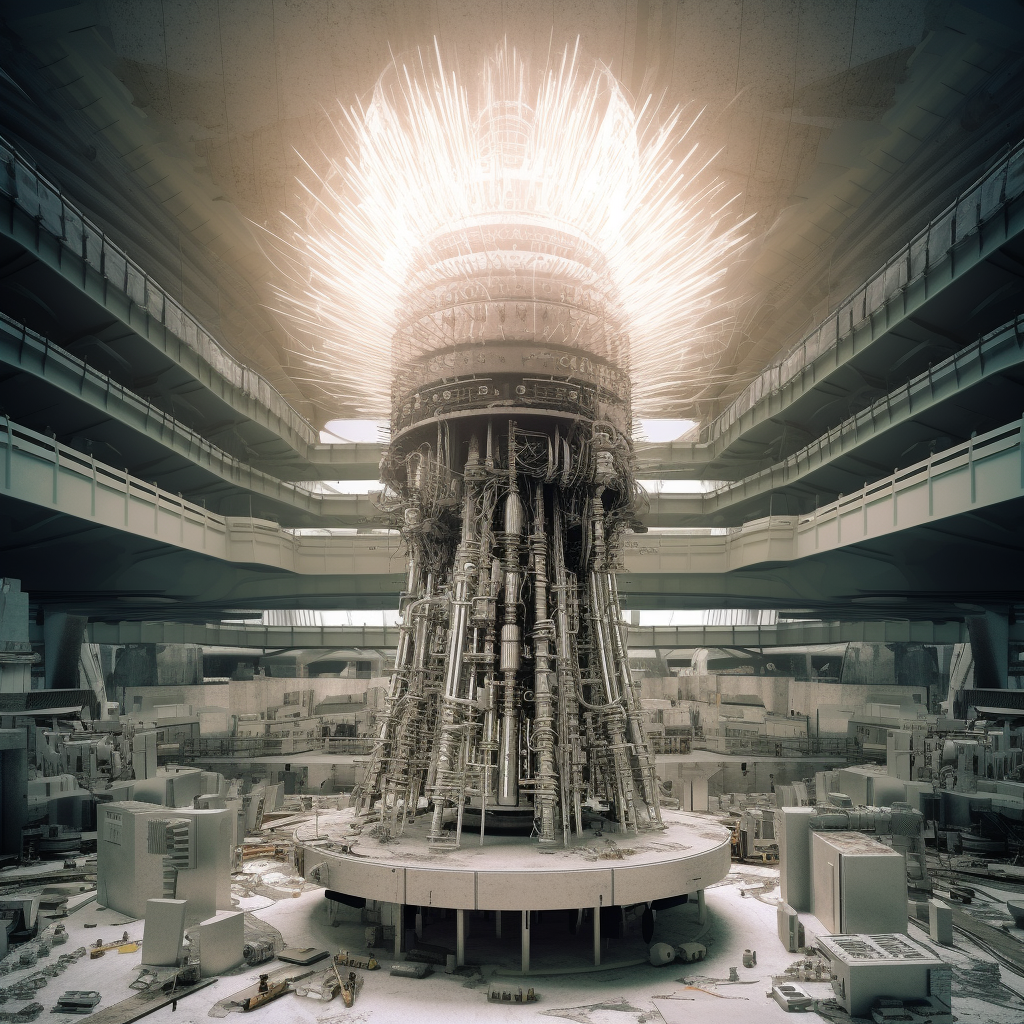February 5, 2024
Powering the Future of AI – Sam Altman’s Investment in Nuclear Fusion and its Potential Impact on the Tech Industry
Book a Demo
OpenAI’s CEO, Sam Altman, has highlighted the need for a significant energy breakthrough to support future AI applications. This is largely due to the high power consumption associated with semiconductors, which are essential components in AI technology. The issue of power consumption becomes even more pressing when considering hyperscale data centers that host power-consuming AI applications.
These data centers are commonly associated with large corporations such as Google, Amazon, and Microsoft, and they demand vast amounts of electricity to function effectively. Altman, aware of these power requirements, made a strategic investment in 2021. He invested $375 million in Helion Energy, a company specializing in nuclear fusion technology.
Helion Energy is expected to provide energy to Microsoft in the coming years, which makes sense given Microsoft’s particular interest in this area. As one of OpenAI’s biggest supporters, Microsoft is projected to require large amounts of electrical power for AI processing in its data centers. To this end, the company has shown considerable interest in nuclear fission and fusion energy sources.
In a move that also signals Microsoft’s commitment to environmental sustainability, the tech giant has partnered with Terra-Praxis. Their mission? To convert coal-fired power plants so they can operate on carbon-free energy sources. Microsoft is even considering situating data centers near existing nuclear power plants or small modular reactors to ensure a steady supply of clean energy.
Backed by Sam Altman, Helion Energy is charting an ambitious course. The company plans to construct its first power plant, which will feature the Polaris fusion machine. If successful, the Polaris machine could be the first fusion machine to demonstrate successful energy production using nuclear fusion technology. This would be a significant achievement, considering the challenges faced in harnessing nuclear fusion so far.
Microsoft, clearly optimistic about the potential of Helion Energy’s technology, is already planning for the future. Anticipating the technology’s availability by 2028, Microsoft made the world’s first purchase agreement with Helion Energy last year. This move underscores Microsoft’s ongoing collaboration with Sam Altman’s ventures, including OpenAI.
The high-stakes world of AI application and development is inextricably linked with the need for stable, sustainable energy sources. If Altman’s investment pays off, it could mark a turning point in the way we power AI technology, making it more efficient and environmentally friendly. Only time will tell if nuclear fusion will be the key to unlocking this potential.
Connect with our expert to explore the capabilities of our latest addition, AI4Mind Chatbot. It’s transforming the social media landscape, creating fresh possibilities for businesses to engage in real-time, meaningful conversations with their audience.



